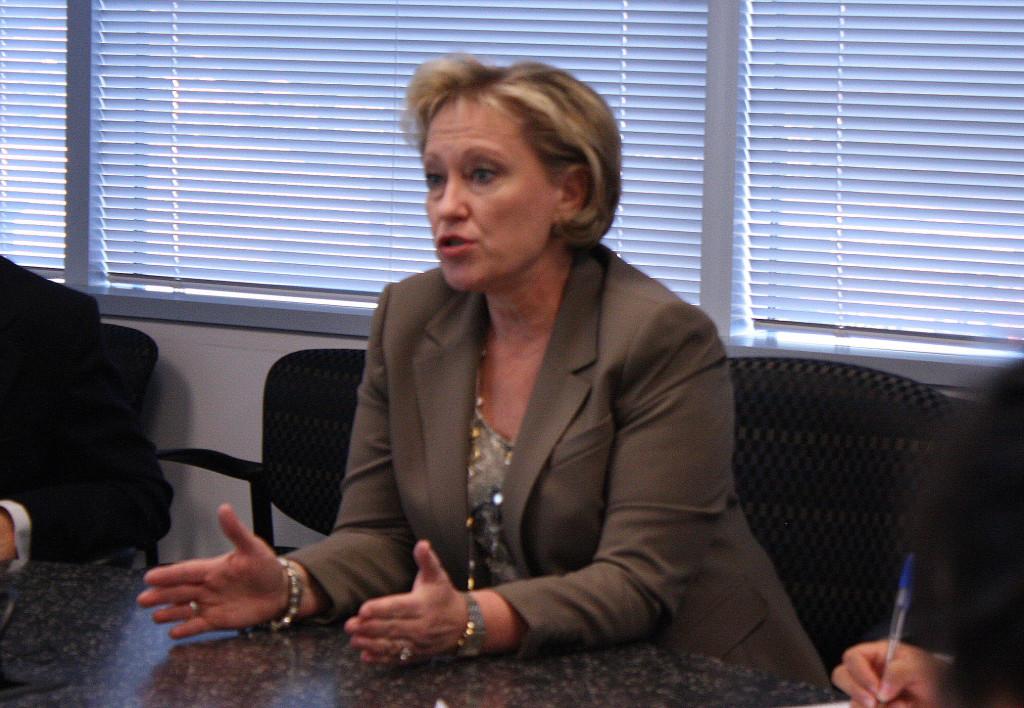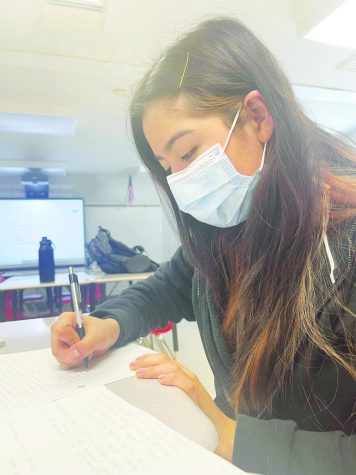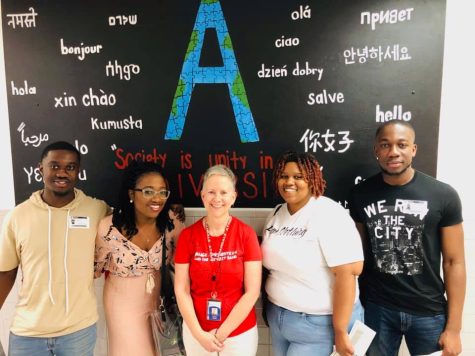Superintendent Dr. Karen Garza talks to students
“Right now athletic fees are on the menu of choices but I don’t expect them to be made,” Garza said.
Student publication leaders from every FCPS high school joined together for a personal round table discussion with the newly elected Superitendent, Karen Garza, asking her questions on her plans for the upcoming school year.
The budget quickly became the reoccuring center of discussion.
“Our needs and our growth have far outpaced our revenue,” Garza said.
Consequently, changes have to be made.
“The challenge with fees is we create conditions where it’s harder for some students to participate in those kinds of activitites that are important; so that’s the inherent and obvious challenge. The other, is while it would generate some money, it’s hard to design a budget around fees because every year it is a different amount of money.”
Nonethless, students may see changes as soon as next year.
“But I will tell you that we can’t address this deficit without affecting class size in some way because that is where most of our money is,” Garza said. “Most of the money in the system is in schools. Most of our employees are teachers. And so, in order to reduce and economize and save money, we have to change class sizes.”
But Garza does not take these cuts easily.
“Not all schools are the same, every school has a unique DNA. A system approach is really what works in systems likes this. You have to consider if you make one move how it will affect the overall system [while] making sure leadership throughout the system is well aligned.“
In particular, Garza is trying to shy away from cutting any student programs.
“The menu of options have many different things. Some of those will never see the light of day. For example, the first and seocnd item have to do with Kindergarten staffing and aides,” said Garza.
Although she could not explain the newly inducted proposals on the table, Garza rationalized to students what was no longer in consideration.
It was suggested that with a lower class size and by reducing the number of class aides, substantial amounts of money would be saved. However, FCPS lacks in classroom size and resources for such a measure.
As for class sizes, or concern over any cuts that may damage the educational enviroment, Garza advises that families and students go directly to the source.
“So when people ask me about that issue of class sizes as a concern, don’t talk to your school board memebers. Don’t talk to me. Talk to your school board advisors.”
The relationship with Garza and the school board was also another topic discussed.
“It is very difficult for us to stay ahead because we have to go to the Board of Supervisors and ask them how much money they will give us to run the shool board. [When I was in Texas] we were in control of how much money we had, so we could predict the next two to three to five years of what our revenue would be,” Garza said.
Although she currently aims to keep a good relationship with the board she admits the structure is polemical.
“By design, the structure creates a lot of angst. Because you have a school board that sits over here that runs the system budgeting money and running the schools, and then you have the Board of Supervisors that is resposnsible for the money,” Garza said.
Nonetheless, there is one student program that is under consideration – FLESS (Foriegn Language for Elementary Schools Students) – which offer students foriegn language classes twice a week for thirty minutes.
“That doesn’t means it is going to be or will not be in the final budget, but looking at our venue of choices FLESS is on the list and that is the only student programing that is on the list,“ Garza said.
However, language immersion classes will still be available for elementary school students and FLESS in itself, Garza explains, has a number of ineffective initiatives, lack of instructional time being one.
Garza also highlighted, throughout the conference, her excitement for the upcoming year and working with the FCPS staff and body.
“The teachers that I’ve seen in this system are unbleievable,” Garza said, “. . . [What] we really need to look long term at what our needs are. We need to plan strategically and long term.”

This is Omnia’s fourth year on staff starting off as International Editor her sophomore year. Also a member of National Honor, Social Studies Honor and...













